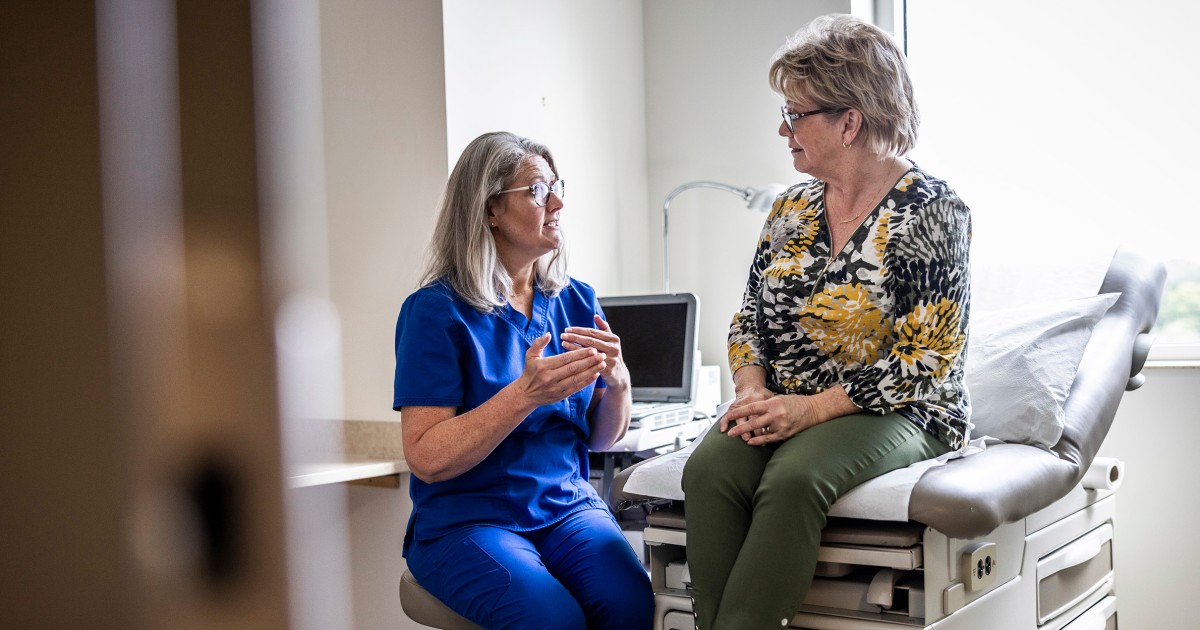Americans are going into 2026 more anxious about health care costs than at any other point in recent years, a new West Health-Gallup survey finds.
Almost half of adults, 47%, say they’re worried they won’t be able to afford health care next year — the highest level since West Health and Gallup began tracking in 2021, the survey published Tuesday found.
Concerns about prescription drug costs have climbed steadily, the survey found — rising from 30% in 2021 to 37% in 2025, also the highest level recorded. And the share of adults who say health care costs cause “a lot of stress” in their daily lives has nearly doubled since 2022, rising from 8% to 15%. The survey also found that about 1 in 3 adults reported delaying or skipping medical care over the last year because they couldn’t afford it.
The annual survey, conducted in June through August, was based on roughly 20,000 respondents across all 50 states and Washington, D.C., and asked 27 questions about people’s health care experiences.
Health care has become a central issue in politics. Senate Democrats’ push to extend enhanced subsidies for the Affordable Care Act led to the longest government shutdown in history. The ACA tax credits, which have protected people from double-digit premium increases, are set to expire Dec. 31. Republicans blocked the effort, and the Trump administration has vowed to “fix Obamacare” but has yet to release a detailed plan.
“The survey shows health care affordability isn’t just a political debate, it’s a problem many people are experiencing now,” said Larry Levitt, executive vice president for health policy at KFF, a nonpartisan research group. “Americans have been struggling to keep up with rising health costs generally and health care specifically.” He wasn’t involved in the survey.
The survey didn’t touch on the subsidies’ expiring. Nor did it include questions about Medicaid work requirements that will go into effect in 2027.
Taken together with the coverage losses that would follow, many people could face even greater challenges paying for health care in the years ahead, said Timothy Lash, president of West Health, a nonpartisan group that researches health care costs and aging.
“The urgency around this is real,” Lash said. “When you look at the economic strain that is on families right now, even if health care prices didn’t rise, the costs are rising elsewhere, which only exacerbates the problem.”
Lash said every metric in the survey has either held steady or gotten worse.
“Americans are saying, ‘Hey, now that I really think about it, I’m paying too much and I’m not getting enough,’” Lash said. “Health care is not what it needs to be right now.”
Differences across states
How people experience health care varied greatly across states.
Iowa, Massachusetts, Washington, D.C., and Rhode Island ranked highest for overall health care experiences, particularly in how easily residents can afford, access and get health care when and where they need it.
Texas, New Mexico, Nevada and Alaska ranked at the bottom of the list.
While 66% of people in Nebraska — which ranked 10th overall — said it’s easy to get the health care they need, just 30% in New Mexico and 31% in Nevada agreed.
But even in the top-ranked states, many people still face difficulties, Lash said. About 15% of people in the top 10 states said they’ve been unable to pay for prescription drugs in the past three months, compared with 29% in the bottom 10.
About 25% of people in the top 10 states reported skipping recommended lab tests or medical procedures because of the cost over the last year, compared with 40% of people in the bottom 10.
Skipping or forgoing medical care was most common in states like Texas (43% reported doing so), Montana (43%) and Alaska (41%), the survey found.
Beyond cost, Americans cited other barriers that have restricted access to care. Nationally, 55% said long wait times prevented or delayed care, and 27% cited work schedules as a barrier.
The top 10 and the bottom 10 states had similar shares of people who delayed or prevented care because they didn’t know how to find providers: 25% and 31%, respectively.
“When you look at the rankings … we have to be very careful to say that someone won,” Lash said. “It’s like being the tallest kid in kindergarten and then suddenly walking outside the classroom and realizing, like, maybe you’re not so tall after all.”
Dr. Adam Gaffney, a critical care physician and assistant professor at Harvard Medical School, said the U.S. health care system is designed to make patients have “skin in the game” when it comes to paying for high health costs.
“While it’s not surprising that states with high uninsurance rates — like Mississippi, which has not expanded Medicaid — have higher rates of cost problems than a state like Massachusetts, where I work,” Gaffney wrote in an email, “even here in the Bay State large numbers experience cost worries due to inadequate insurance.”
Lawrence Gostin, director of the O’Neill Institute for National and Global Health Law at Georgetown University, said the findings may add pressure on Congress to extend the enhanced ACA subsidies before the end of the year.
Even if they don’t, he said, the pressure could intensify once Medicaid work requirements begin in 2027. The Congressional Budget Office, a nonpartisan government group, projects that 4.8 million people will lose coverage because of the work requirements.
“The public has major anxiety about access to affordable health care,” Gostin said. “Deep concern and anxiety over health insurance premiums and medical bills is only likely to become more acute due to the lapse in ACA premium subsidies and major cuts to Medicaid.”

